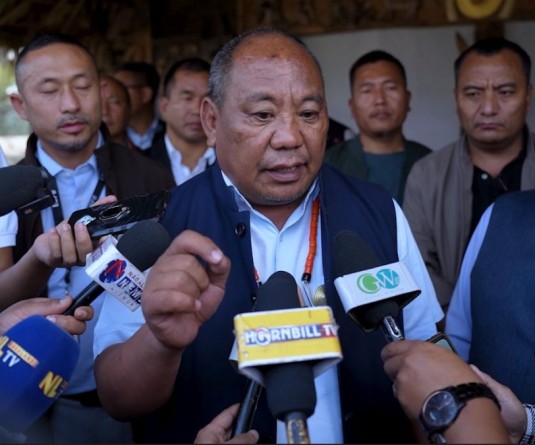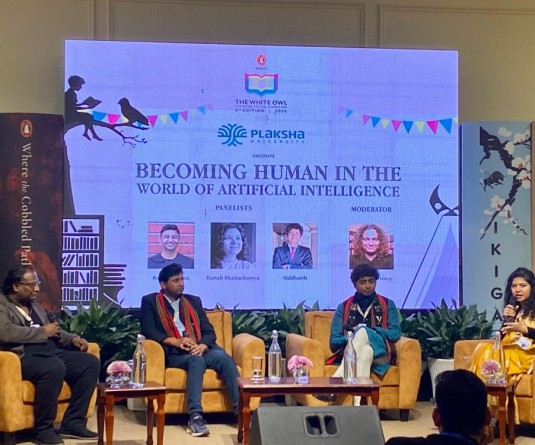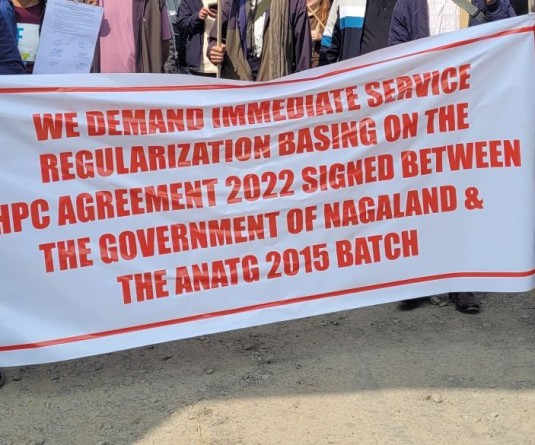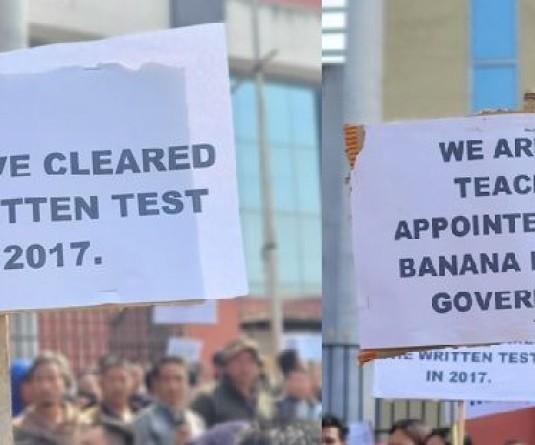Resource persons and participants during the programme at Amaluma village on June 10. (Photo Courtesy: ICAR)
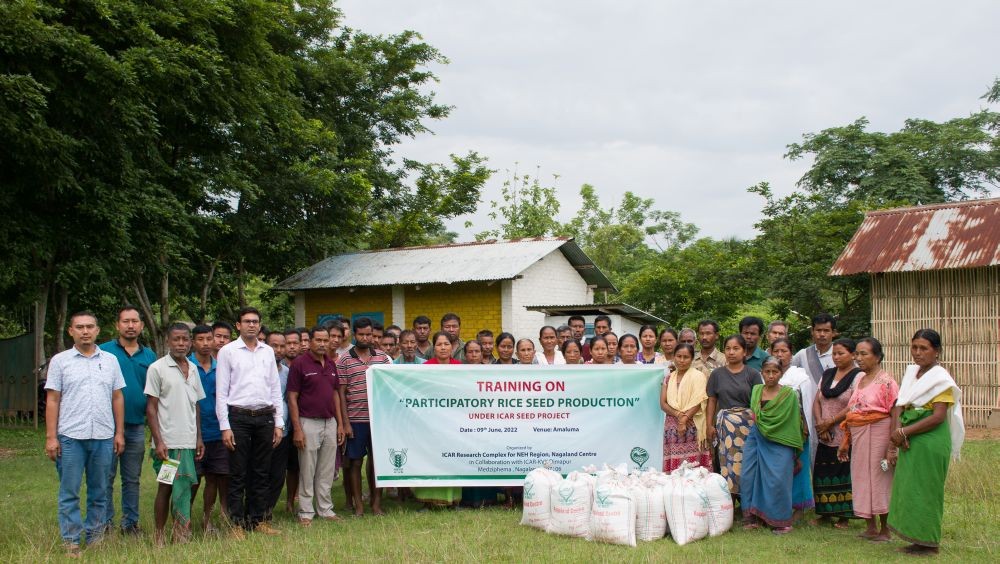
Dimapur, June 13 (MExN): A farmers-scientist interaction programme and training on ‘Participatory rice seed production’ under ICAR seed project was organized at Amaluma village of Dimapur district on June 10 by ICAR Nagaland Centre, Medziphema and KVK, Dimapur to distribute and popularized RCM-9 rice variety in Nagaland.
A press release from Joint Director, ICAR Nagaland Centre stated that quality planting material is the most important and critical input for successful agriculture. It said that in Nagaland, quality planting material is not available on time to meet out the quality seed demand and seed replacement ratio is below 15% in the state, which is very low, mainly due to reliance on informal seed system with traditional rice. Rice productivity of Nagaland is very low with a tune of 1.6 tonnes/hectare (GOI, 2018) as compared to the national average of 2.7 tonnes/hectare due to use of traditional low yielding landraces and use of impure seeds of old HYVs.
“Therefore, by increasing the availability of quality seed material of HYVs on time will increase the production and productivity of the state to achieve self-sustenance in rice production,” he added.
Dr Harendra Verma, scientist, Plant Breeding and Genetics, ICAR Nagaland Centre, Jharnapani discussed the future prospects and know-how on participatory rice seed production. He advised and encouraged the farmers to take up quality seed production to meet local seed demand timely. He also advised grow High yielding and short duration variety such as RCM-9, which is medium duration variety (125-130 days) so that farmers can harvest it by end of October and in rabi season farmers can easily taken-up various crops such as toria, mustard, pea, linseed, any vegetables crops etc. by utilizing the residual moisture present in soil to enhance the farm income.
Dr Roben Singh, SMS, KVK Dimapur also emphasized on use of early and medium duration HYVs of rice (RCM-9) and encouraged the farmers to go for natural farming using farm available resources for sustainability of soil and farmer’s income.
At the end of programme 200 kg of “RCM-9” rice variety and seed of improved Bitter gourd “Navbharati” was distributed to the 40 farmers of Amaluma village for bitter gourd production.
A farmer- scientist interaction was also conducted in which queries related to pest and nutrient management and post-harvest management of rice was discussed. A total of 45 farmers participated in the programme.


